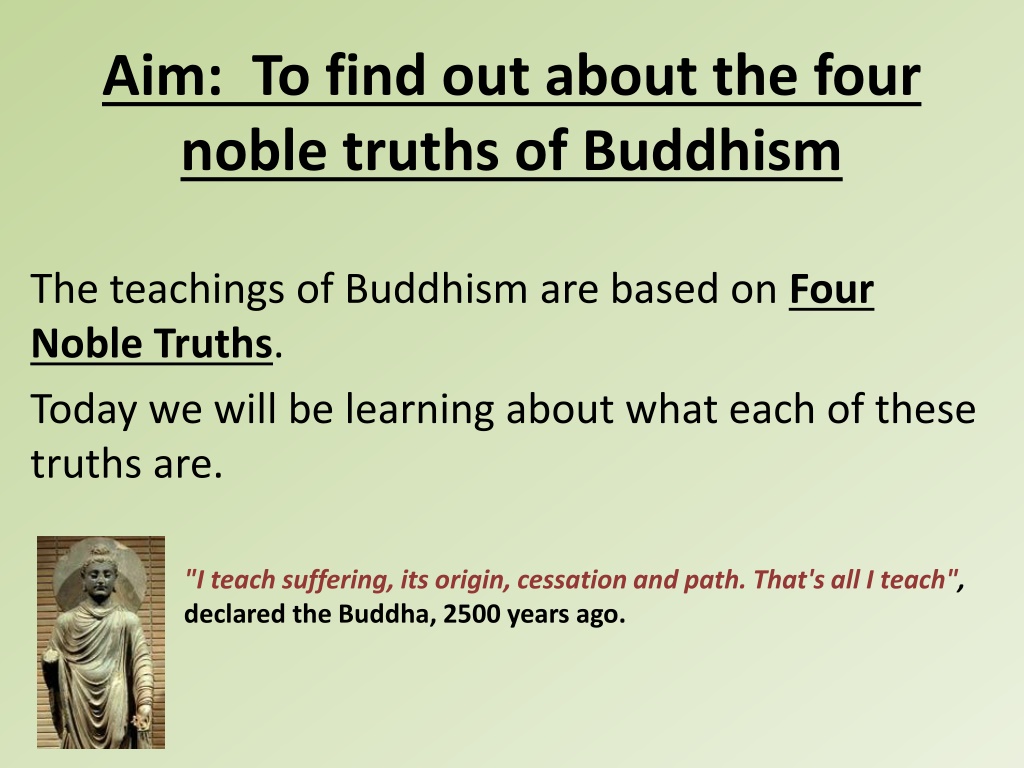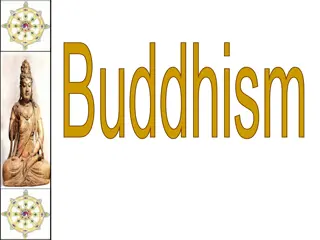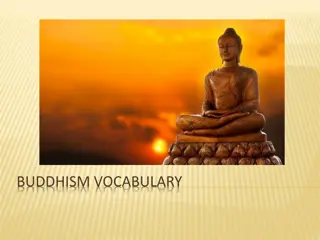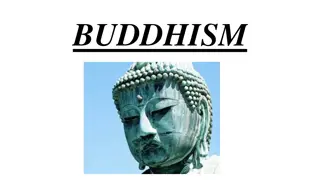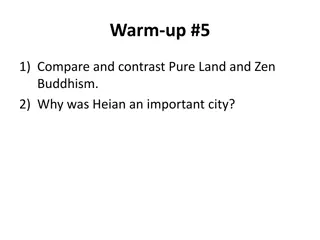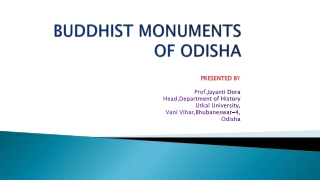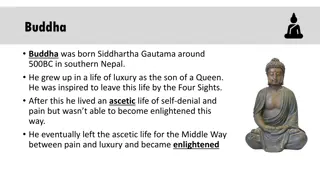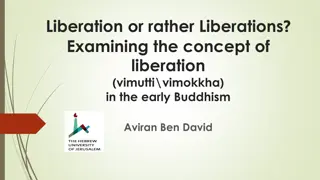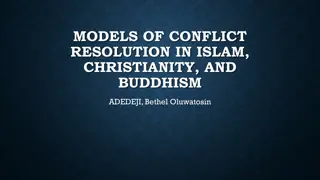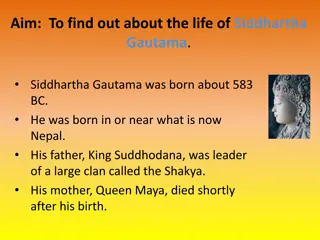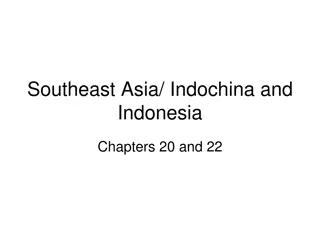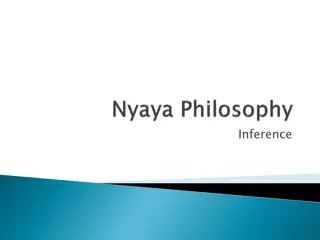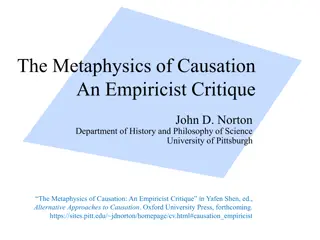Understanding the Four Noble Truths of Buddhism
The teachings of Buddhism are centered around the Four Noble Truths revealed by the Buddha 2500 years ago. These truths encapsulate the core principles of suffering, its origins, cessation, and the path to liberation. Each truth delves into the nature of human suffering, the root causes of desires and attachment, the necessity of detachment from possessions, and ultimately, the path to end suffering. Through these profound truths, individuals can navigate the complexities of existence and strive towards attaining inner peace and compassion for all living beings.
Download Presentation

Please find below an Image/Link to download the presentation.
The content on the website is provided AS IS for your information and personal use only. It may not be sold, licensed, or shared on other websites without obtaining consent from the author. Download presentation by click this link. If you encounter any issues during the download, it is possible that the publisher has removed the file from their server.
E N D
Presentation Transcript
Aim: To find out about the four noble truths of Buddhism The teachings of Buddhism are based on Four Noble Truths. Today we will be learning about what each of these truths are. "I teach suffering, its origin, cessation and path. That's all I teach", declared the Buddha, 2500 years ago.
Aim: To find out about the 4 noble truths of Buddhism In the first two Noble Truths the Buddha realised the problem (suffering) and identified its cause. Dukkha Dukkha is the truth of suffering. The Buddha relates these truths to what he saw when he left the palace: Getting old; Becoming sick; Death. The Buddha taught that we don t always get we want from life, and we have to accept that.
Aim: To find out about the 4 noble truths of Buddhism In the first two Noble Truths the Buddha realised the problem (suffering) and identified its cause. Samud ya The Buddha says that all of our worries and problems are caused by desire. He stated that desire comes from 3 things: 1. Greed (which is represented in art by a rooster); 2. Ignorance (which is represented by a pig); 3. Hatred and destructive urges (represented by a snake).
Aim: To find out about the 4 noble truths of Buddhism Nirodha The third truth that the Buddha taught is that, to get rid of desire, we have to detach ourselves from possessions. This means we need to be liberated from any material goods. The Buddha taught people that once they got rid of the need for possessions, they would have reached a state of mind called nirvana . You can only reach nirvana once you have got rid of greed, delusion and hatred. The Buddha said that when you have reached nirvana, you will have compassion for all living things.
Aim: To find out about the 4 noble truths of Buddhism Magga The final Noble Truth is the Buddha's hope for the end of suffering. The Buddha said that there are 8 steps that should be followed in order to get rid of suffering. We will be learning about the 8 steps in our next lesson.
Aim: To find out about the 4 noble truths of Buddhism Task: Your task is to create a PPT that tells the message of the four noble truths of the Buddha. It is up to you how you design your PPT, but you must make sure that it shows each of the noble truths of the Buddha.
Aim: To find out about the 4 noble truths of Buddhism Task: You need to explain what each of the noble truths are, carefully considering how each of them would lead to enlightenment, You also need to include self-reflection about each of the truths. Give your opinion about them and critically think about them.
Aim: To find out about the 4 noble truths of Buddhism Task: Within your PPT, you must ensure that you are not plagiarising other people s work. If you find a quote, it must be contained within inverted commas with the author named in brackets underneath. For example: Do not dwell in the past, do not dream of the future, concentrate the mind on the present moment. (Buddha)
